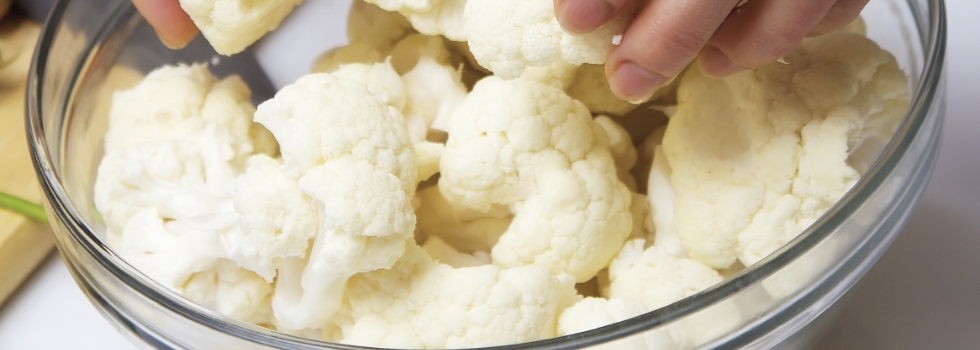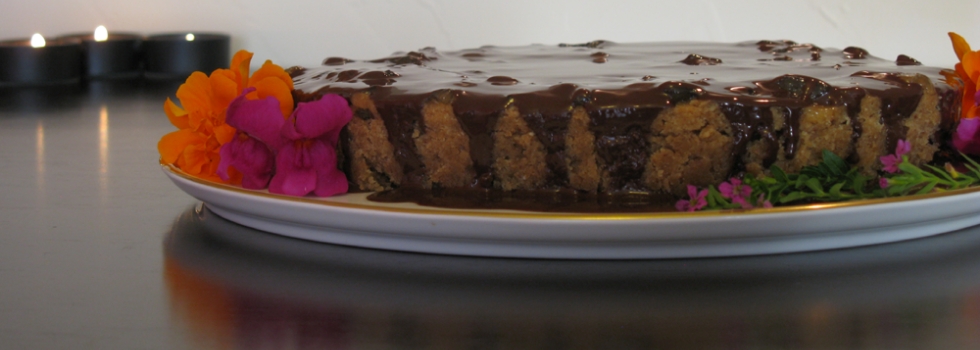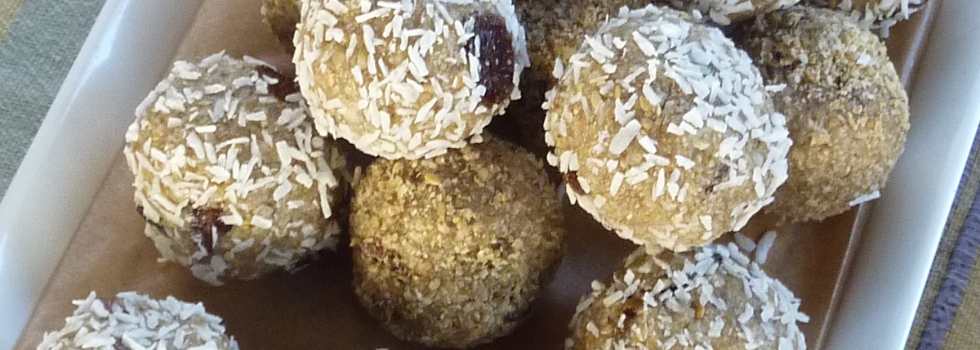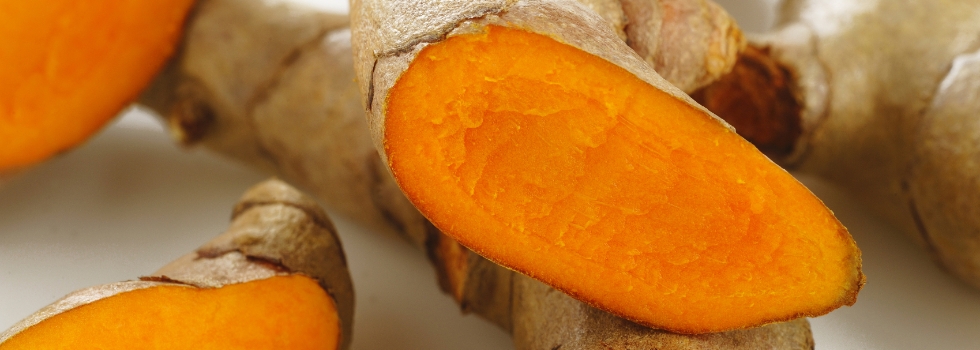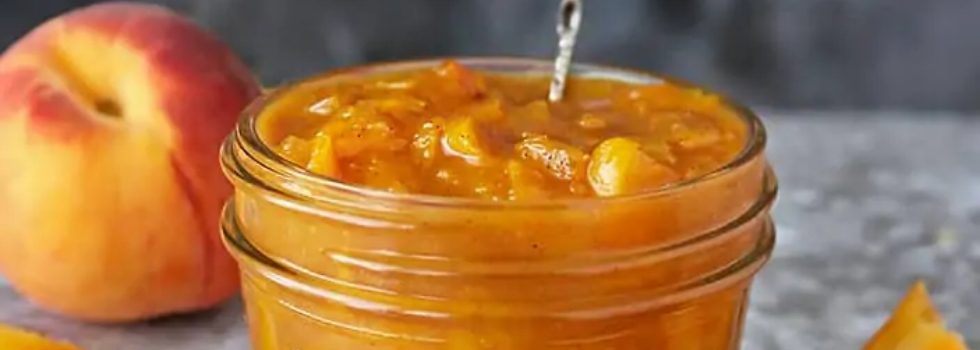from Ayurveda Today, Volume 23, Number 2, Fall 2010
Fall is a wonderful time of year to transform any in-season vegetable, such as cauliflower, into a rich, hearty soup. Cauliflower is digestion-friendly to pitta and kapha and, by the warm, smooth, and unctuous qualities of this soup, it becomes equally welcoming to vata during its vulnerable season (now). Because of its form, cauliflower is said to be good for the brain. Other health properties of this heady vegetable include high amounts of vitamin C as well as anti-inflammatory and cancer-prevention substances.
Doshic Notes
Vata = Pitta = Kapha +
Ingredients
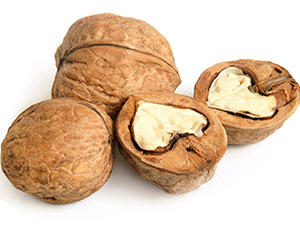 1 cup onion chopped
1 cup onion chopped
7 cups (approx.) cauliflower
1 1/2 cups (approx.) red skinned potatoes
2 tsp. coriander
1 tsp. fenugreek
1 tsp. cinnamon
1/2 tsp. turmeric
1 pinch hing
2 Tbs. ghee, sesame or olive oil
3/4 cup walnuts soaked overnight
5 cups water or vegetable stock
1 tsp. mineral salt
Optional nori or other sea vegetable flakes
Preparation
Soak the walnuts, preferably overnight, in warm water with a pinch of salt. If not, just before use, blanch them with hot water and let them sit for 15 minutes. Drain the water and make a walnut “milk” by placing the walnuts and one cup of fresh water or stock in a blender. Blend well. Then, add a second cup of water and blend again until the milk is smooth.
Dice the onion. Cut the thick stalk of the cauliflower as close to the florets as possible. Then, using your hands, gently break the florets into small, like-sized “trees” to ensure even cooking. Chop the stalk into small chunks. Leave the skin on the potatoes and cut them into cubes.
In a soup pot, sauté the onion in the ghee or oil over medium heat for 5 minutes. Add the spices and quickly stir for a minute, paying close attention that the spices don’t stick and burn. If the latter risks being the case, toss a bit of water in the pot. Now add the cauliflower florets, cauliflower stalk, potatoes, and salt. Stir well.
Add just enough water or stock (approximately 3 cups) to almost cover the vegetables. Cover the pot and let simmer over medium heat.
When the vegetables are tender but not mushy, remove two to three cups of vegetables with liquid and add to the walnut milk in the blender. Purée until smooth. Add the puréed veggies and walnut milk mixture back to the pot of vegetables. Stir well.
Adjust the salt if necessary and serve immediately. For an added dose of trace minerals, vitamins, and nutrients, garnish the soup with a sprinkling of nori or other sea vegetable flakes.
Note: Allow yourself to be flexible with the ingredients. Should you not have all the individual spices readily available, opt for a curry powder or a dosha-balancing churna instead. If you don’t have walnuts on hand, substitute soaked and peeled almonds or hazelnuts. If nuts don’t agree with you, forgo them completely and you will still get a delicious soup. For a sweeter version of this soup, exchange the red-skinned potato for cubed winter squash, such as red kobucha, or sweet potato. This recipe works also very well with romanesco broccoli, the tasty, bright green, fractal-shaped variation of cauliflower. Kapha can omit the walnuts or replace with almonds to balance.
Michele Schulz’s love for Ayurveda began more than 15 years ago and infuses her offerings of nutrition, cooking, and yoga. From her adoptive home of France and internationally, Michele gives Ayurvedic nutrition and lifestyle consultations, as well as cooking and yoga workshops. Michele gives courses and consultations internationally and can be contacted at micheleschulz@gmail.com
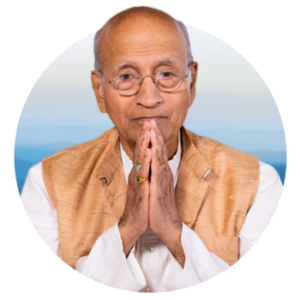
Vasant Lad BAM&S, MASc
A native of India, he served for three years as Medical Director of the Ayurveda Hospital in Pune, India. He was Professor of Clinical Medicine at the Pune University College of Ayurvedic Medicine for 15 years. He holds a Bachelor’s of Ayurvedic Medicine and Surgery (BAM&S) degree from the University of Pune and a Master’s of Ayurvedic Science (MASc) degree from Tilak Ayurved Mahavidyalaya. The author of numerous books, Vasant Lad is respected throughout the world for his knowledge of Ayurveda.

